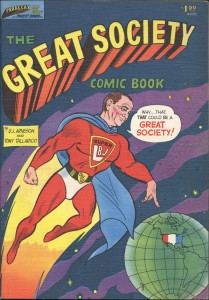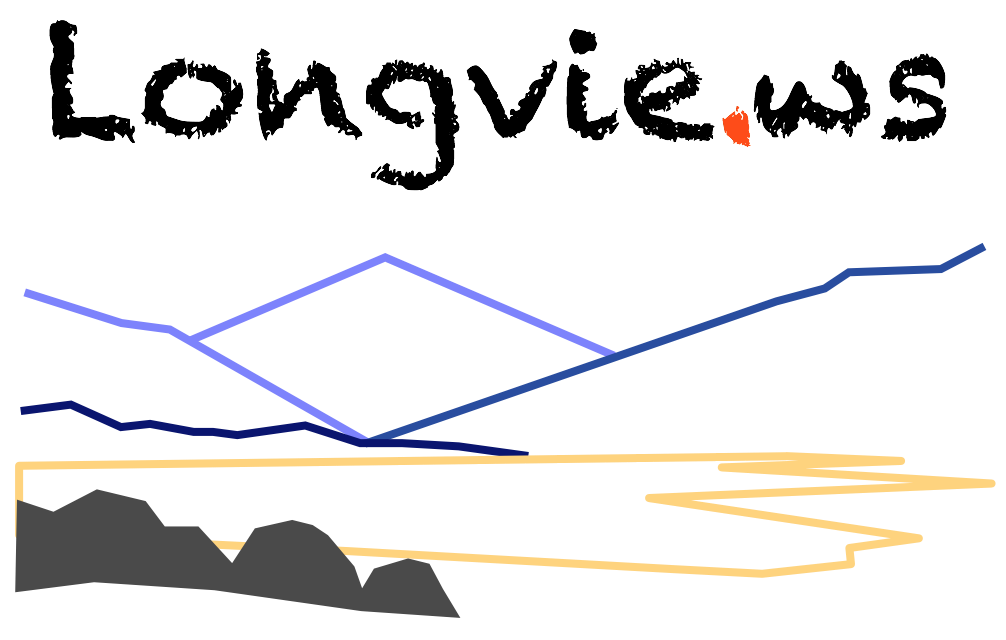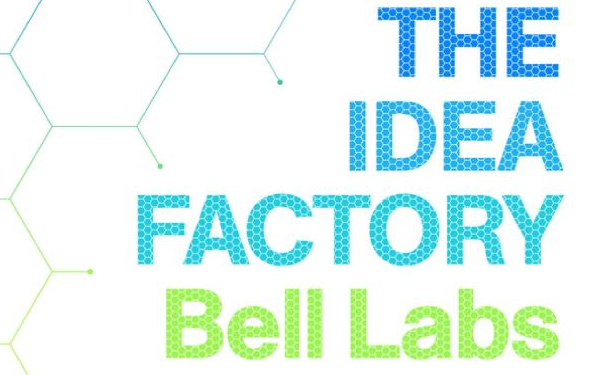– Longvie.ws Editor (August 20, 2012)
You might know of the nice story of the MBA and the fisherman [1]. In short, an American MBA finds a fisherman who spends his days on the beach and tries to convince the already happy man to start a fishing company to make enough money to…spend his days on the beach fishing. The message is that of needs versus wants and, I suppose, the evil that is the business-focused society.

So let’s explore society.
I believe that society has a long term purpose: survival. Whether a small village or humanity as a whole, society fulfills this mission by supporting the happiness or contentedness of it’s people as well as by driving progress. Neither alone is enough. The latter helps ensure the perpetuity of our species (the reason probably society exists [2]) and the former helps prevent society from breaking apart. Progress also fulfills something in the human spirit that allows for happiness.
So what do we mean by happiness? We don’t mean everybody sitting on the beach fishing [3]. Happiness frees a person to fulfill his potential to succeed as he is capable of succeeding: to find a path through life that is reasonably chosen (not prescribed). Happiness defines a meaningful life (or at least having an environment that makes living a meaningful life possible) given that no one’s life is easy.
Humanity is such that we will not be all happy in an environment without pressure. Some of us want to be kings. Some of us want to be builders of large things: corporations, pyramids, whatever. Some of us want to be leaders of men. Some of us want to take ridiculous risks. And so on.
Society vitally provides opportunities for different types of people to fulfill their needs. If not, chaos ensues because one or more powerful people [4] are over-limited. I’m sure an example comes to mind [5]. A viable society allows for disruptive people to fulfill their needs without destroying the society from which they emerged. Our society, for example, allows for people who are not intellectuals or hyper-athletes to be successful. You can start a coffee chain and make billions of dollars without having a high school diploma, without being able to solve an algebra equation, and still meet your need to make a difference, to be important. Every one should have this opportunity [6]. From society’s perspective, happiness is a level of opportunity for individuals to be human beings while preferably contributing to humanity’s overall capabilities.
Some actions are unacceptable: murder (except in times of war), becoming a king and ruling over everyone else. Somebody becoming a king or emperor would limit the opportunity (happiness) of everyone else, maybe too much. And from a survival point of view, there are some forms of society that are more efficient for progress (capitalism being better in this regard than kingdoms, so we think). And that brings us back to progress.
Progress defines the strength of a society. Society allowed us, in the early days, to grow as a species, to protect ourselves and our food supply. This stability lead to growth and gave some of us time to be inventive – so that we were more capable of handling shocks and future crises. The ultimate limit of this is how to survive a planetary catastrophe. That’s quite a long view (hopefully). The same principle holds however if we are not progressing, if we are not making ourselves more robust against perturbation. This is why I have serious problems with people who say we shouldn’t be developing technology, that it’s destructive to the planet, that we should be living out in the woods somewhere with zero footprint or that “we have enough technology already”. That’s short-sighted, on either side of the happiness/progress equation.
Yet, unrestricted rapid technological progress can endanger humanity.
These are the foundational questions of Longvie.ws: thinking about the different paths our society could and should take. What is the most optimal structure of society and culture to get us – as a country, planet, and species – where we need to be? That ideal structure might be some mix of societies and cultures that we have now. It might incorporate new technologies and methods. And there will be many developments in terms of technology and culture – bio/medical/nano-technologies, politics, business development, religion – that make all that possible. We are living during the most rapid technological period of change that man has ever known. These developments need to be understood. Our essays are roughly drafted musings to begin the discussion from this longer term perspective. We hope to have fun as we go.
Forgive poor grammar and spelling for now; please tell us what you think in a critical but productive way.
Footnotes:
[1] An American businessman was at a pier in a small coastal Mexican village when a small boat with just one fisherman docked. Inside the small boat were several large yellow-fin tuna. The American complimented the Mexican on the quality of his fish and asked how long it took to catch them.
The Mexican replied only a little while.
The American then asked why didn’t he stay out longer and catch more fish?
The Mexican said he had enough to support his family’s immediate needs. The American then asked the Mexican how he spent the rest of his time.
The Mexican fisherman said, “I sleep late, fish a little, play with my children, take siesta with my wife, Maria, stroll into the village each evening where I sip wine and play guitar with my amigos. I have a full and busy life, senor.”
The American scoffed, “I am a Harvard MBA and could help you. You should spend more time fishing and, with the proceeds, buy a bigger boat. With the proceeds from the bigger boat, you could buy several boats, eventually you would have a fleet of fishing boats. Instead of selling your catch to a middleman you would sell directly to the processor, eventually opening your own cannery. You would control the product, processing and distribution.
“You would need to leave this small coastal fishing village and move to Mexico City, then LA and eventually NYC where you will run your expanding enterprise.”
The Mexican fisherman asked, “But senor, how long will this all take?”
The American replied, “15-20 years.”
“But what then, senor?” asked the Mexican.
The American laughed, and said, “That’s the best part! When the time is right, you would announce an IPO and sell your company stock to the public. You’ll become very rich, you would make millions!”
“Millions, senor?” replied the Mexican. “Then what?”
The American said, “Then you would retire. Move to a small coastal fishing village where you would sleep late, fish a little, play with your kids, take siesta with your wife, stroll to the village in the evenings where you could sip wine and play your guitar with your amigos.”
[2] Roughly seven thousand years ago, humans began to leave their nomadic ways and form civilizations around the irrigation and cultivation of land. As a result, human society and community transformed radically. The creation of government and bureaucracy, of social classes, written language, the rule of law, the notion of the individual, standing armies, and much more, all emanated from this technological change. Dubbed the “irrigation society” by management thinker Peter Drucker (Drucker, P.F. (1965). The First Technological Revolution and Its Lessons. Presidential address to the Society for the History of Technology; 1965 Dec 29; San Francisco, CA.), this first great technological revolution of man lasted over two thousand years.
[3] Though that might be happiness for some people.
[4] Some people are inherently powerful.
[5] You might think Alexander the Great or Genghis Kahn. What popped into my head, however, was G. W. Bush and Dick Cheney. These two men had power issues – they wanted it, and in many ways they were distructive forces. But they could have been much more distructive had the history, culture, and structure of US society not imposed on them significant constraints in terms of how long they could maintain power. (Look at Putin over the same time period.)
[6] It shouldn’t be easy, it shouldn’t be assured, life is not fair, everyone has different talents.










Pingback: Arie Baisch()
Pingback: Lincoln Georgis()
Pingback: premium-domains()
Pingback: Help with assignment()
Pingback: valentine pillow()
Pingback: organic antiseptic()
Pingback: cracked feet()
Pingback: Click Here()
Pingback: Click Here()
Pingback: Click Here()
Pingback: Click Here()
Pingback: Click Here()
Pingback: Click Here()
Pingback: Click Here()
Pingback: Click Here()
Pingback: Click Here()
Pingback: Click Here()
Pingback: Click Here()
Pingback: Click Here()
Pingback: Click Here()
Pingback: Click Here()
Pingback: Click Here()
Pingback: Click Here()
Pingback: Click Here()
Pingback: Click Here()
Pingback: Click Here()
Pingback: Click Here()
Pingback: Click Here()
Pingback: Click Here()
Pingback: Click Here()
Pingback: Click Here()
Pingback: Click Here()
Pingback: moveit studio()
Pingback: robots remote control()
Pingback: Click Here()
Pingback: Reputation Defenders()
Pingback: Reputation Defenders()
Pingback: Click Here()
Pingback: Click Here()
Pingback: Click Here()
Pingback: Click Here()
Pingback: Click Here()
Pingback: Click Here()
Pingback: Click Here()
Pingback: Click Here()
Pingback: Click Here()
Pingback: Click Here()
Pingback: Click Here()
Pingback: Click Here()
Pingback: Click Here()
Pingback: Click Here()
Pingback: Click Here()
Pingback: Click Here()
Pingback: Click Here()
Pingback: Click Here()
Pingback: Click Here()
Pingback: Click Here()
Pingback: Click Here()
Pingback: Click Here()
Pingback: grand rapids teeth whitening()
Pingback: Click Here()
Pingback: https://gquery.org/()
Pingback: Click Here()
Pingback: Click Here()
Pingback: Click Here()
Pingback: Click Here()
Pingback: Click Here()
Pingback: Click Here()
Pingback: Click Here()
Pingback: Click Here()
Pingback: 라이브카지노사이트()
Pingback: Click Here()
Pingback: Click Here()
Pingback: Click Here()
Pingback: Click Here()
Pingback: Click Here()
Pingback: Click Here()
Pingback: Click Here()
Pingback: refer and earn apps without KYC()
Pingback: Click Here()
Pingback: Click Here()
Pingback: Click Here()
Pingback: Click Here()
Pingback: Click Here()
Pingback: Click Here()
Pingback: Click Here()
Pingback: Click Here()
Pingback: Click Here()
Pingback: Click Here()
Pingback: Click Here()
Pingback: Click Here()
Pingback: Click Here()
Pingback: 라이브 딜러 카지노()
Pingback: 라이브 딜러 카지노()
Pingback: domain-portfolio()
Pingback: buy-premium-domains()
Pingback: formation agents()
Pingback: free website for small business()
Pingback: athletic leggings()
Pingback: Google reviews()
Pingback: Pornography Australia()
Pingback: reputation defenders()
Pingback: 2023 Books()
Pingback: find people()
Pingback: deceased()
Pingback: dead people()
Pingback: IRA Empire()
Pingback: football betting tips today()
Pingback: Chirurgie esthétique Tunisie()
Pingback: Chirurgie Tunisie()
Pingback: Chirurgie Tunisie()
Pingback: National Chi Nan University()
Pingback: Course descriptions at future university in egypt()
Pingback: Community engagement()
Pingback: تقدم جامعة المستقبل بمصر وتطورها()
Pingback: Partnership agreements()
Pingback: Deputy Chairman Board of Trustees fue()
Pingback: Global partnerships()
Pingback: التوظيف بعد الدراسات العليا()
Pingback: البحث العلمي()
Pingback: التعليم العالي()
Pingback: Business school in Egypt()
Pingback: Professional accounting education()
Pingback: الإدارة العامة()
Pingback: Econometrics()
Pingback: Local society()
Pingback: الادارة العامة()
Pingback: Field Visits()
Pingback: Social Activities()
Pingback: Medical Campaigns for pharmacy students at future university()
Pingback: كلية الصيدلة جامعة المستقبل بمصر()
Pingback: Large Lecture Halls()
Pingback: Oral and Dental Medicine()
Pingback: Oral Surgery()
Pingback: علاج امراض اللثة()
Pingback: withdrawal from the semester()
Pingback: Community Engagement()
Pingback: FCIT Graduate Programs()
Pingback: قسم علوم الحاسب()
Pingback: Grading Policy()
Pingback: fue()
Pingback: fue()
Pingback: International Level()
Pingback: annual welcome party()
Pingback: free treatment()
Pingback: top university in egypt()
Pingback: international achievement()
Pingback: Executive MBA program in Cairo()
Pingback: برامج الإقامة في طب الأسنان()
Pingback: برامج الدراسات العليا لطب الأسنان()
Pingback: امتحانات القبول لجامعة المستقبل()
Pingback: رسوم التقديم لجامعة المستقبل()
Pingback: متطلبات القبول لجامعة المستقبل()
Pingback: Faculty of commerce & business administration Contact()
Pingback: برنامج المالية بجامعة المستقبل بمصر()
Pingback: Get in Touch with Faculty of pharmacy()
Pingback: contact Vice Deans Faculty of Engineering and tecnology()
Pingback: برامج الإقامة في طب الأسنان()
Pingback: Career Counseling()
Pingback: future unversity in egypt news()
Pingback: https://www.kooky.domains/post/choosing-the-right-web3-domain-name-for-your-business-or-brand()
Pingback: https://www.kooky.domains/post/domain-management-and-security-in-the-web3-ecosystem()
Pingback: Business leadership training in Egypt()
Pingback: Interdisciplinary nature()
Pingback: مقالات محكمة()
Pingback: كلية الصيدلة()
Pingback: Clinical dentistry()
Pingback: كم عدد سنوات الدراسة في كلية الهندسة()
Pingback: engineering curriculum()
Pingback: Department of Computer Engineering()
Pingback: best university in egypt()
Pingback: future unversity in egypt news()
Pingback: Letters of recommendation for future university()
Pingback: Maillot de football()
Pingback: Maillot de football()
Pingback: Maillot de football()
Pingback: Maillot de football()
Pingback: Maillot de football()
Pingback: Maillot de football()
Pingback: Maillot de football()
Pingback: Maillot de football()
Pingback: Maillot de football()
Pingback: Maillot de football()
Pingback: Maillot de football()
Pingback: Maillot de football()
Pingback: Maillot de football()
Pingback: Maillot de football()
Pingback: Maillot de football()
Pingback: SEOSolutionVIP Fiverr()
Pingback: SEOSolutionVIP Fiverr()
Pingback: SEOSolutionVIP Fiverr()
Pingback: SEOSolutionVIP Fiverr()
Pingback: SEOSolutionVIP Fiverr()
Pingback: SEOSolutionVIP Fiverr()
Pingback: lampada lineare LED()
Pingback: Luce lineare LED()
Pingback: lampadari in sospensione()
Pingback: tomate musculation()
Pingback: pulley machine()
Pingback: corp de rêve femme()
Pingback: Fiverr Earn()
Pingback: Fiverr Earn()
Pingback: Fiverr Earn()
Pingback: Fiverr Earn()
Pingback: Fiverr Earn()
Pingback: Fiverr Earn()
Pingback: Fiverr Earn()
Pingback: Fiverr Earn()
Pingback: Fiverr Earn()
Pingback: Fiverr Earn()
Pingback: fiverrearn.com()
Pingback: fiverrearn.com()
Pingback: fiverrearn.com()
Pingback: fiverrearn.com()
Pingback: fiverrearn.com()
Pingback: Advance-Esthetic LLC()
Pingback: fiverrearn.com()
Pingback: freight class calculator()
Pingback: ikaria lean belly juice buy()
Pingback: transportation management system()
Pingback: cortexi buy()
Pingback: french bulldog for sale houston()
Pingback: clothes manufacturer usa()
Pingback: clothing manufacturing usa()
Pingback: clothes manufacturer mexico()
Pingback: clima para mañana()
Pingback: fiverrearn.com()
Pingback: french bulldog puppies()
Pingback: fiverrearn.com()
Pingback: fiverrearn.com()
Pingback: merle french bulldog()
Pingback: blue merle frenchies for sale()
Pingback: exotic bully lifespan()
Pingback: springer doodle()
Pingback: micro bully()
Pingback: golf cart rental isla mujeres()
Pingback: jute rugs()
Pingback: Sem()
Pingback: YouTube SEO()
Pingback: Piano Delivery London()
Pingback: Piano Disassembly and Assembly()
Pingback: Top university in Egypt()
Pingback: Private universities in Egypt()
Pingback: Best university in Egypt()
Pingback: Private universities in Egypt()
Pingback: Best university in Egypt()
Pingback: Best university in Egypt()
Pingback: Private universities in Egypt()
Pingback: Private universities in Egypt()
Pingback: things to be careful of in isla mujeres()
Pingback: chocolate brindle french bulldog()
Pingback: teacup french bulldog for sale()
Pingback: black french bulldog()
Pingback: restaurants vietnam()
Pingback: frenchie jewelry()
Pingback: miniature french bulldog()
Pingback: new york clima hoy()
Pingback: frenchie colors()
Pingback: french bulldogs texas for sale()
Pingback: Personalised jewellery for her()
Pingback: tech()
Pingback: future university()
Pingback: future university()
Pingback: future university()
Pingback: future university()
Pingback: future university()
Pingback: future university()
Pingback: future university()
Pingback: future university()
Pingback: future university()
Pingback: french bulldog puppies for sale in houston()
Pingback: multisbo()
Pingback: renting golf cart isla mujeres()
Pingback: seo()
Pingback: french bulldogs()
Pingback: Fiverr.Com()
Pingback: Fiverr.Com()
Pingback: Fiverr()
Pingback: grey frenchie()
Pingback: french bulldog in austin()
Pingback: fue()
Pingback: transportation from cancun to isla mujeres()
Pingback: golf cart rental isla mujeres()
Pingback: french bulldog puppies()
Pingback: french bulldog puppies()
Pingback: golf cart rental in isla mujeres()
Pingback: six sigma()
Pingback: Warranty()
Pingback: Piano disposal professionals()
Pingback: Piano relocation experts()
Pingback: FUE()
Pingback: FUE()
Pingback: FUE()
Pingback: FUE()
Pingback: FUE()
Pingback: FUE()
Pingback: Furniture disassembly()
Pingback: Commercial moving()
Pingback: Moving coordination()
Pingback: Packing services()
Pingback: Activate.BestBuy.AccountOnline.com()
Pingback: pcfinancial ca activate card()
Pingback: FiverrEarn()
Pingback: FiverrEarn()
Pingback: FiverrEarn()
Pingback: FiverrEarn()
Pingback: Fiverr()
Pingback: FiverrEarn()
Pingback: Free Local Classified Ads()
Pingback: Sell Unwanted items online()
Pingback: FiverrEarn()
Pingback: Coach()
Pingback: Media()
Pingback: FiverrEarn()
Pingback: Pupuk Organik terbaik dan terpercaya hanya melalui pupukanorganik.com()
Pingback: pupuk()
Pingback: pupuk anorganik terbaik()
Pingback: Pupuk terpercaya dan terbaik hanya melalui pupukanorganik.com()
Pingback: Unisex Modern Graphic Tees/Apparel()
Pingback: partners()
Pingback: list of testosterone supplements()
Pingback: biofit official website()
Pingback: tea burn where to buy()
Pingback: folifort reviews()
Pingback: metafast website()
Pingback: neurozoom supplement()
Pingback: revive daily()
Pingback: french bulldog()
Pingback: french bulldog()
Pingback: Predictions()
Pingback: FiverrEarn()
Pingback: FiverrEarn()
Pingback: FiverrEarn()
Pingback: live sex cams()
Pingback: live sex cams()
Pingback: live sex cams()
Pingback: live sex cams()
Pingback: live sex cams()
Pingback: FiverrEarn()
Pingback: FiverrEarn()
Pingback: FiverrEarn()
Pingback: FiverrEarn()
Pingback: FiverrEarn()
Pingback: FiverrEarn()
Pingback: french bulldog kennels texas()
Pingback: FiverrEarn()
Pingback: FiverrEarn()
Pingback: FiverrEarn()
Pingback: FiverrEarn()
Pingback: FiverrEarn()
Pingback: FiverrEarn()
Pingback: FiverrEarn()
Pingback: FiverrEarn()
Pingback: FiverrEarn()
Pingback: FiverrEarn()
Pingback: FiverrEarn()
Pingback: FiverrEarn()
Pingback: FiverrEarn()
Pingback: Queen Arwa University()
Pingback: FiverrEarn()
Pingback: FiverrEarn()
Pingback: Farm()
Pingback: wix seo services()
Pingback: web design()
Pingback: shopping cart()
Pingback: Slot Online()
Pingback: Situs Judi Slot Online()
Pingback: Scientific Research()
Pingback: Kuliah Termurah()
Pingback: FiverrEarn()
Pingback: FiverrEarn()
Pingback: FiverrEarn()
Pingback: FiverrEarn()
Pingback: FiverrEarn()
Pingback: FiverrEarn()
Pingback: FiverrEarn()
Pingback: FiverrEarn()
Pingback: Generator Repair near me Sheffield()
Pingback: puravive scam or legit()
Pingback: cheap sex cams()
Pingback: fullersears.com()
Pingback: fullersears.com()
Pingback: fullersears.com()
Pingback: french bulldog()
Pingback: live sex cams()
Pingback: live sex cams()
Pingback: live sex cams()
Pingback: dehydrated water()
Pingback: frt trigger()
Pingback: Creditos fiscales()
Pingback: Asesoria Fiscal()
Pingback: car rental in dubai with driver()
Pingback: Company Registeration()
Pingback: 늑대닷컴()
Pingback: Slot online gacor()
Pingback: One Peace AMV()
Pingback: nangs delivery sydney()
Pingback: superslot()
Pingback: freelance web designer()
Pingback: allgame()
Pingback: 918kiss()
Pingback: หวย24()
Pingback: Skincare serum()
Pingback: french bulldog with clothes()
Pingback: pg slot()
Pingback: AI Attorney()
Pingback: Raahe Guide()
Pingback: Raahe Guide()
Pingback: apk slot tanpa deposit()
Pingback: aplikasi slot()
Pingback: Dating Classes()
Pingback: hotel on lake placid()
Pingback: upstate hotels()
Pingback: electronic visa()
Pingback: 44-40 ammo()
Pingback: SaaS Law Firm()
Pingback: itsMasum.Com()
Pingback: itsMasum.Com()
Pingback: itsMasum.Com()
Pingback: itsMasum.Com()
Pingback: itsMasum.Com()
Pingback: catégorie logiciel malveillant()
Pingback: salaire d'un ingénieur()
Pingback: ingénieur en informatique salaire()
Pingback: formation cybersécurité pôle emploi()
Pingback: formation cybersécurité pôle emploi()
Pingback: cybersécurité salaire()
Pingback: POLEN FÜHRERSCHEIN()
Pingback: nangs sydney()
Pingback: nangs delivery in Sydney()
Pingback: Nangs delivery sydney()
Pingback: réparation chauffe eau Tours()
Pingback: website()
Pingback: here()
Pingback: itsmasum.com()
Pingback: roleplay chat()
Pingback: talkwithstangers()
Pingback: free chat now()
Pingback: online talking to strangers()
Pingback: joker gaming()
Pingback: paris jobs()
Pingback: uk jobs()
Pingback: usa jobs()
Pingback: jobs()
Pingback: atlanta job search()
Pingback: live sex webcams()
Pingback: live sex chat()
Pingback: live adult webcams()
Pingback: Kampus Ternama()
Pingback: A Yemeni Arab Journal Indexed by Scopus and ISI()
Pingback: Queen Arwa University for Academic Sciences()
Pingback: جامعة الملكة أروى للعلوم الاكاديمية()
Pingback: 918kiss()
Pingback: Premium URL Shortener()
Pingback: pg slot()
Pingback: 918kiss()
Pingback: FB URL Shortener()
Pingback: itme.xyz()
Pingback: ItMe.Xyz()
Pingback: ItMe.Xyz()
Pingback: ItMe.Xyz()
Pingback: ItMe.Xyz()
Pingback: Instagram URL Shortener()
Pingback: Dropbox URL Shortener()
Pingback: itme.xyz()